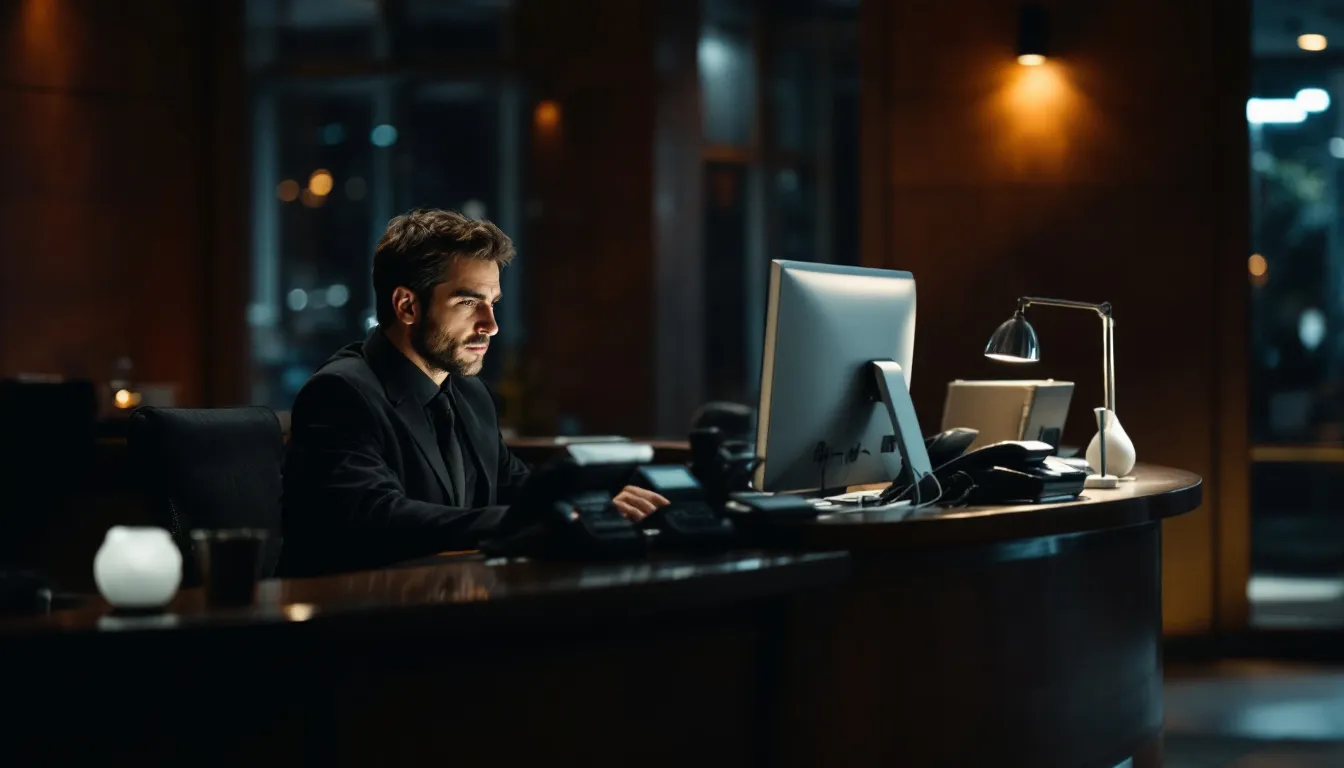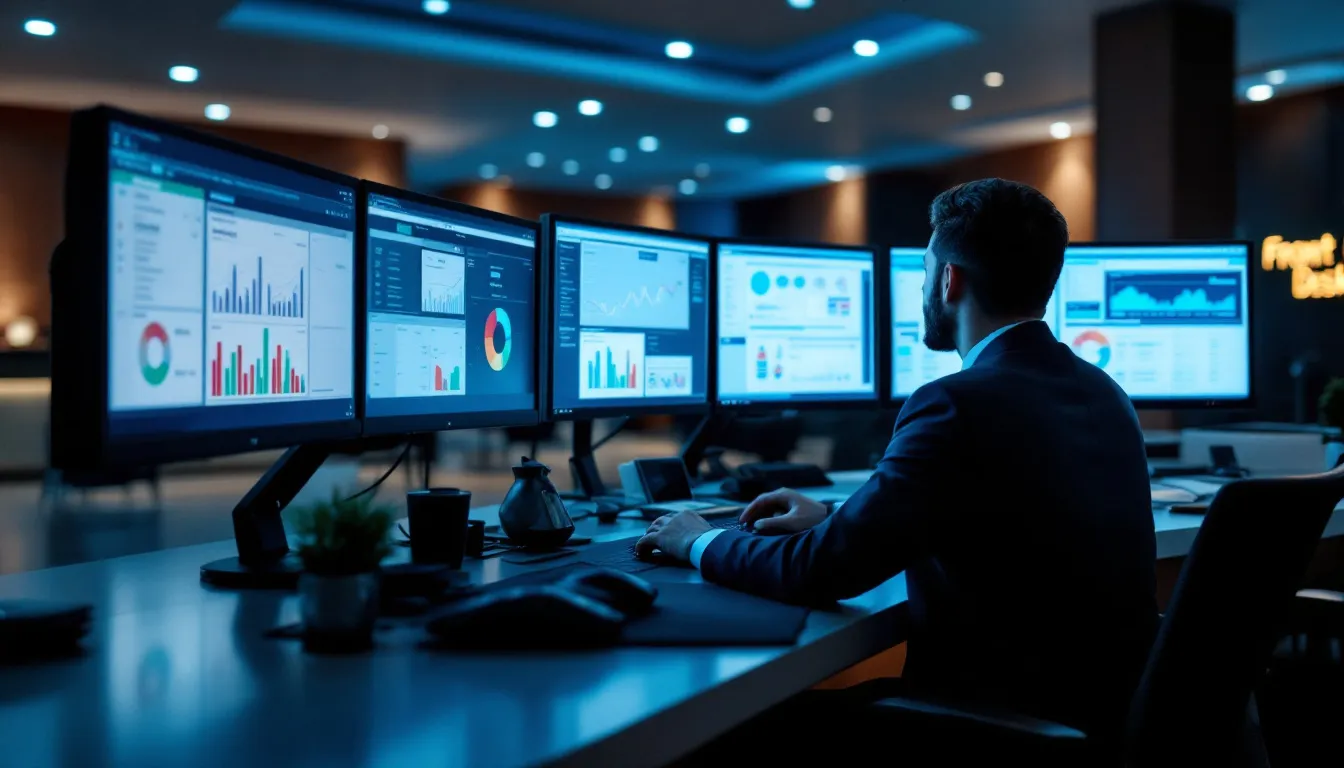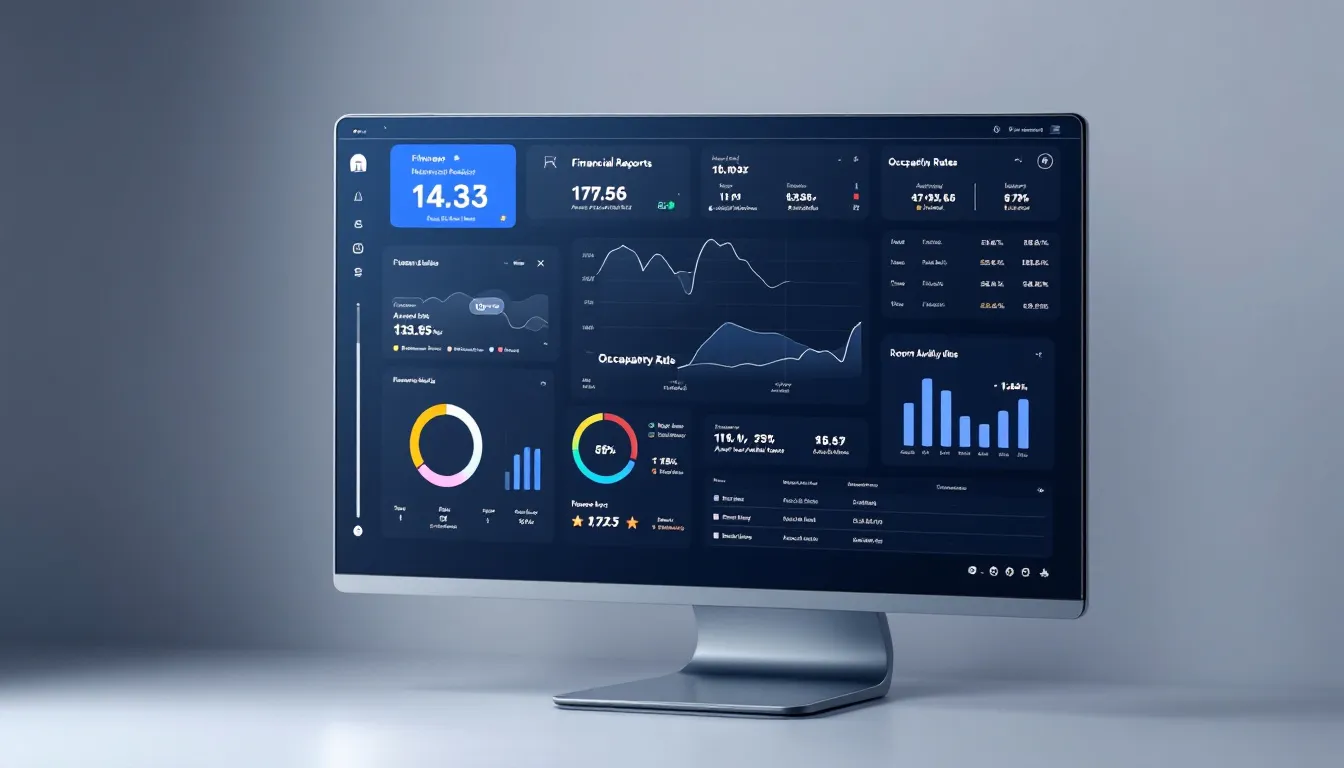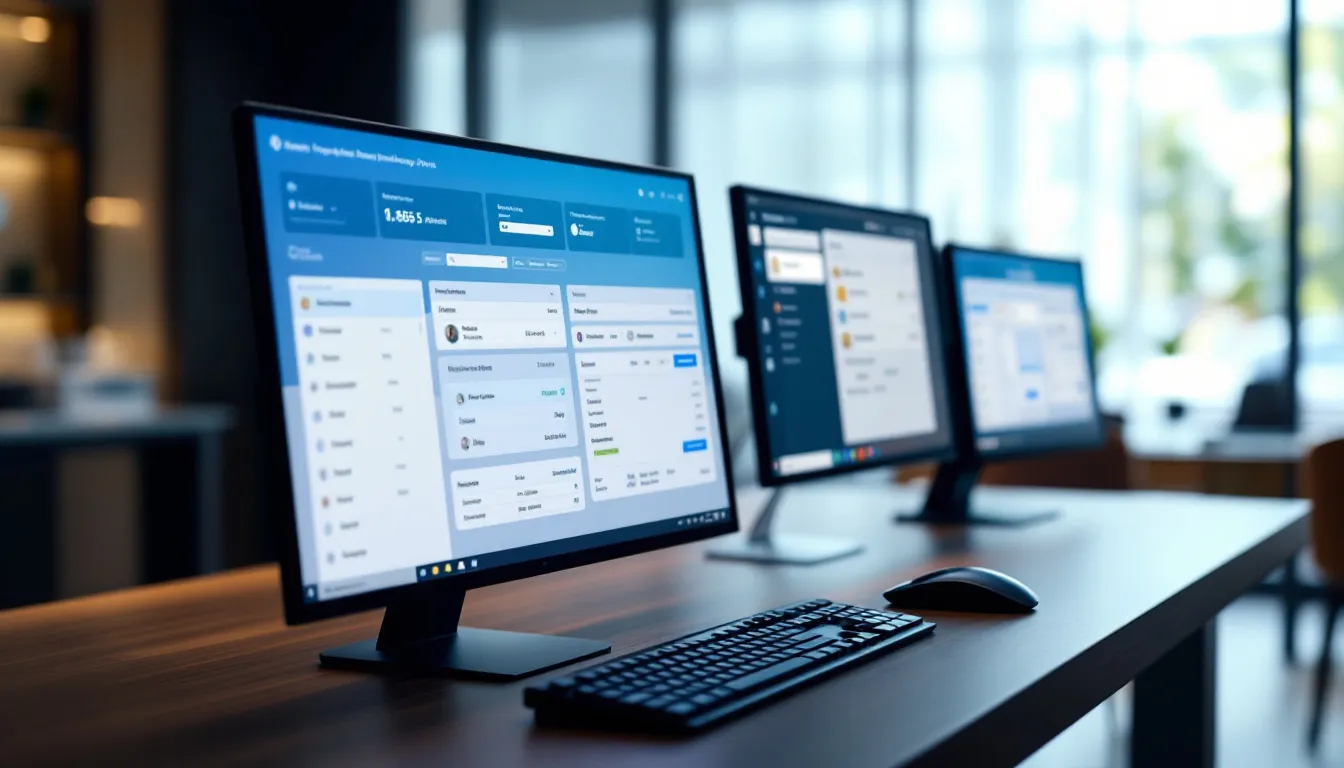Hotel Night Audit: Your Go-To Guide for Overnight Financial Operations
 Mika Takahashi
Mika Takahashi Mika Takahashi
Mika TakahashiEvery night, while hotel guests are fast asleep, a vital financial process quietly takes place behind the scenes. This process ensures that revenue is accurately recorded, guest satisfaction remains high, and the hotel is ready for a smooth day ahead. This is the hotel night audit—a crucial yet often overlooked part of hospitality management that acts as the financial backbone of a hotel’s operations.
In 2024 alone, hotels across the United States brought in a staggering $239 billion in revenue. The nightly hotel night audit plays a key role in capturing and safeguarding this massive income. Whether you’re a hotel manager aiming to streamline operations, a hospitality professional wanting to understand financial workflows, or someone curious about a career as a hotel night auditor, this guide covers everything you need to know about overnight financial operations.

Think of the night audit process as the hotel’s nightly financial check-up. It’s a thorough review and reconciliation of all the day’s financial transactions and operational data, usually done during the quiet hours between 11 PM and 7 AM. This process acts as both a financial safety net and an operational handoff, ensuring everything is accurate and ready for the next business day.
During the night audit, the night auditor reviews all guest accounts, posts final room charges, reconciles payments, and generates important reports for management. This process officially closes out one business day and sets the stage for the next, making sure no new transactions interfere with the day’s financial records.
Because guest activity is low overnight, this is the perfect time for the night auditor to dive into data without disrupting services. Thanks to modern Property Management Systems (PMS), much of this work is now automated, speeding up calculations, improving accuracy, and offering real-time insights that manual methods simply couldn’t match.
Closing the business day cleanly is essential—it prevents any mix-ups with charges and payments and provides hotel management with reliable financial information to make informed decisions.
The night auditor wears many hats, blending the roles of a front desk agent and a financial specialist. Their job description covers guest services, financial tasks, security coordination, and administrative duties—all critical to keeping the hotel running smoothly during the night shift.
On the guest-facing side, the night auditor handles late check-ins, early check-outs, reservation processing, guest questions, and any emergencies that pop up overnight. They make sure guests receive the same quality of service as during the day, even while juggling complex financial responsibilities.
Financial duties are at the heart of the night auditor’s role. They post room charges, reconcile all payments, verify credit card transactions, balance cash drawers, and ensure every guest folio is accurate and complete. They also take care of no-shows, late check-out fees, and billing adjustments to keep everything in order.
Security is another important responsibility. The night auditor often acts as the main point of contact for security systems and emergency situations, monitoring the property and coordinating with security staff or emergency responders when needed.
On the administrative side, they generate and distribute night audit reports, prepare documentation for the morning management team, update room status, and ensure all reports are accurate and timely. Essentially, they bridge the gap between the night shift and the day team, keeping communication flowing smoothly.

The hotel night audit is the financial foundation that protects revenue, ensures compliance, and keeps operations running without a hitch. Skipping or rushing this process can lead to lost revenue, regulatory troubles, and unhappy guests facing billing errors.
One of the biggest benefits is financial accuracy. By reconciling all transactions daily, hotels can catch and fix mistakes before they affect guest accounts or financial reports. This helps spot human errors, system glitches, and ensures all room charges, taxes, and fees are correctly applied.
Revenue protection is another key advantage. The night audit helps prevent revenue leakage by verifying every charge and catching unbilled services or incorrect rates. Hotels with fully automated night audits often see a 90% drop in end-of-day errors, directly boosting their bottom line.
Compliance with accounting rules and tax laws is also ensured through detailed documentation and reporting during the audit. This creates a clear audit trail for regulators and provides the financial records needed for tax filings and stakeholder reporting.
Operationally, the night audit smooths the transition between business days. Management gets accurate daily reports, departments receive updated guest and room info, and front desk staff start fresh with reconciled accounts and reliable system data.
Finally, guest satisfaction improves when billing is spot-on and accounts are well-maintained. Accurate night audits reduce billing disputes and checkout delays, contributing to a positive guest experience and encouraging repeat visits.
Hotels use various approaches to the night audit depending on their size, technology, and needs. Knowing the differences helps you choose the right fit for your property.
Choosing between manual and automated audits depends on accuracy, efficiency, and resources.
Manual audits allow deep control and flexibility, letting auditors investigate discrepancies thoroughly. But they take longer—often 2-3 hours compared to just 30-60 minutes for automated audits—and carry a higher risk of human error, especially late at night.
Automated systems improve accuracy and save time. Built-in validation checks catch common errors automatically, reducing mistakes. Hotels using automation often cut staff reconciliation time by 70%.
Cost-wise, automated systems require upfront tech investments but lower labor costs and minimize revenue loss from errors. Manual systems cost less initially but demand more skilled staff time and risk costly mistakes.
Implementation challenges differ too: automated systems need staff training and reliable overnight IT support, while manual systems rely on strong accounting skills and attention to detail.
Smaller hotels may prefer manual or semi-automated methods due to lower transaction volumes and budgets, while larger hotels usually benefit from fully automated systems.
The night audit generates a suite of reports that give hotel management vital financial information and operational insights. These reports support daily decisions and long-term planning.

Here’s a typical workflow for the night audit process, designed to keep things consistent and accurate.
Hotel technology has transformed the night audit, making it faster, more accurate, and less stressful.

Night auditing comes with unique challenges due to its timing and complexity. Here’s how hotels tackle them:
Being a great night auditor means blending technical skills with a friendly, professional attitude.

To keep night audits running smoothly and accurately, try these best practices:
Hotels that invest in these practices enjoy fewer errors, faster training, and better overall efficiency—benefits that pay off in guest satisfaction and reliable finances.
The hotel night audit is where financial management, guest service, and operational excellence meet. From the manual audits of the past to today’s automated systems, this process remains essential for protecting revenue, ensuring compliance, and keeping daily operations on track.
Hotels that prioritize strong night audit procedures, skilled staff, and smart technology position themselves for financial accuracy, smoother operations, and happier guests. Whether you run a small property with manual audits or a large hotel with cutting-edge automation, the principles of thorough reconciliation, clear reporting, and detailed documentation never change.
Night auditors do much more than crunch numbers—they’re key players in guest service, security, and preparing the hotel for a new day. As the hospitality industry evolves, so will the night audit process, but its core mission of ensuring financial integrity and operational success will stay the same.
For hotel managers and professionals, mastering the night audit is a powerful way to understand and improve hotel operations and financial management throughout your career.